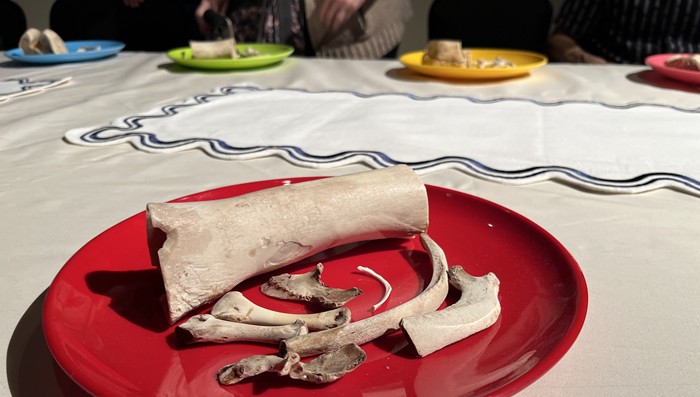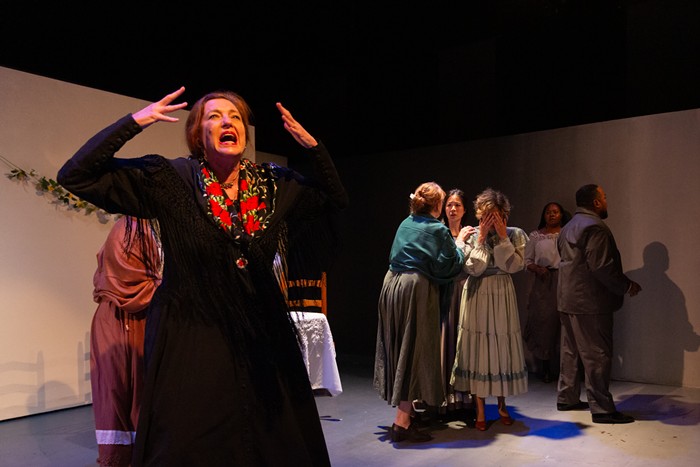Stark Raving Theatre, 2257 NW Raleigh, 232-7072, Thurs- Sat 8 pm, Sun 7 pm, $15
The buzz surrounding Stark Raving's Tundra has thus far concentrated on the grant awarded Portland playwright Joseph Fisher from the Kennedy Center Fund for New American Plays. But the proof is in the pudding, as they say, and it turns out the ten grand Tundra received is well-deserved: the script is a hauntingly beautiful script of understated, melancholic themes.
Set in a small town in the frozen north, the story revolves around a reporter (Darcy Lynne) sent to investigate a hermetic composer (Paul Floding) and the controversial origin of his final pieces. The town exists in a perpetual state of frozen whiteness where the temperature hovers around 30 degrees below zero. It makes almost no sense to live in such a hostile climate, and each of the play's five characters must explain why they consciously chose to inhabit a place of only ice and wind.
During the course of her investigations the journalist stumbles into the mystery of a local boy and his father who disappeared into the tundra. As she starts to unravel the composer's self-imposed isolation and the strange deference of privacy surrounding the disappearances, it becomes clear that all the characters are running from something, or in some cases, toward something inexplicably on the brink.
The overwhelming personality in Tundra is of place, of a chilled, empty landscape and its pestilential control over human life. Throughout the show the characters shiver and look out past the audience into a frozen abyss only they can see.
Credit is due to light and set designers Nathan Burks and Neil Edwards for their simple yet effective design. They've constructed an antiseptic, white space adorned only with a partial, colorless Steinway in the corner. Using virtually no props, the frozen clime and the composer's castle of ice is evoked through light patterns and the sounds of wind or familiar yet unrecognizable piano pieces. In some instances the manifestation of the tundra is actually given a disembodied voice.
Tundra is tightly written and performed; decorated with sparkling lines of restrained sentiment and more obvious metaphor. It leaves the audience with lonely musings. ANNA SIMON


















